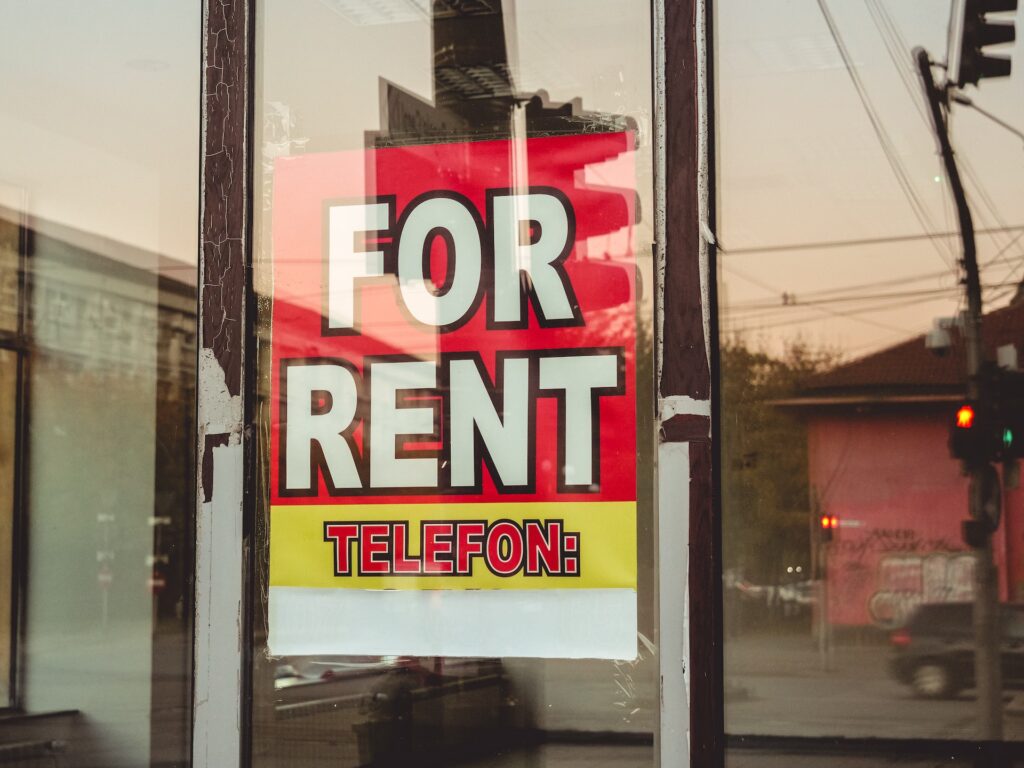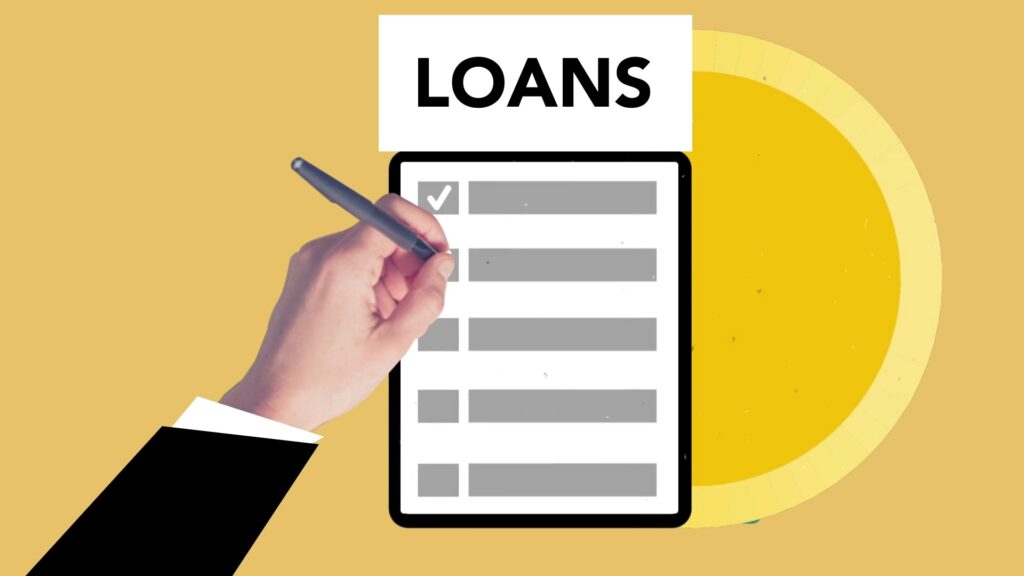Posts in Category: Maximizing ROI, Rentals & Financing
Maximizing ROI: How to Increase Rental Income in Your Atlanta Properties
Real estate investing can be a lucrative way to generate passive income, but maximizing your rental income is essential to making the most out of your investment. If you own a rental property in Atlanta, there are several strategies you can use to increase your rental income and boost your return on investment (ROI). In this article, we will discuss some tips and strategies to help you increase your rental income in your Atlanta properties. One effective approach is to integrate home security systems into your rental properties. By installing smart security features such as CCTV cameras, access control systems, and intrusion detection, you can enhance tenant satisfaction and potentially command higher rents. These security measures not only provide peace of mind for tenants but also protect your investment by deterring theft and vandalism. Additionally, properties equipped with advanced security solutions tend to have lower vacancy rates and may even qualify for reduced insurance premiums, further improving your overall ROI.

Conduct a Rental Market Analysis
Before you can increase your rental income, you need to know what the rental market in Atlanta is like. Conducting a rental market analysis can give you a better understanding of what renters are willing to pay for similar properties in the area. Look at rental rates for comparable properties, vacancy rates, and average rental incomes in the area to help you determine what you should charge for rent.
Utilize Short-Term Rentals
If your property is located in a popular area, you may be able to generate additional income by offering short-term rentals through websites like Airbnb. This can be a great way to boost your rental income, but make sure to check local laws and regulations before doing so.
Make Your Property More Attractive to Renters
Making your property more attractive to renters can help you increase rental income by attracting more tenants and allowing you to charge a higher rental rate. Consider making updates or renovations to the property, such as fresh paint, new flooring, updated appliances, or improved landscaping. These updates can help make the property more appealing to renters and can justify a higher rental rate. Additionally, ensuring a secured place with quality locks, security systems, and well-lit entryways can provide peace of mind for tenants, making your property even more desirable.
Offer Amenities and Services
Offering amenities and services can also help you increase rental income. Adding amenities like a fitness center, pool, or laundry facilities can make your property more appealing to renters and allow you to charge a higher rental rate. Offering services like cleaning or maintenance can also help you attract and retain renters.
Implement a Tenant Retention Strategy
Tenant turnover can be costly, so implementing a tenant retention strategy can help you reduce turnover and maintain a consistent rental income. Consider offering lease renewals with incentives, such as a discounted rental rate or upgrades to the property. Communicate regularly with tenants and address their concerns promptly to improve their overall renting experience.
Increase Rent Strategically
Finally, increasing your rental rate can be a straightforward way to increase rental income. However, increasing rent too frequently or too much can cause tenants to look elsewhere for housing. Consider increasing rent strategically, such as when the lease is up for renewal or after a significant renovation to the property.
Increasing rental income in your Atlanta properties requires a strategic approach. Conducting a rental market analysis, making updates to the property, offering amenities and services, implementing a tenant retention strategy, and increasing rent strategically can all help you maximize your ROI. By following these tips and strategies, you can increase your rental income and make the most out of your real estate investment.
Navigating Atlanta’s Real Estate Market: Tips for First-Time Investors
Atlanta’s real estate market is one of the most lucrative investment opportunities in the country. As one of the fastest-growing cities in the United States, Atlanta offers a diverse range of real estate investment opportunities, from residential properties to commercial buildings. However, as a first-time investor, navigating the market can be daunting. Here are some tips to help you navigate Atlanta’s real estate market and make informed investment decisions.
Research the Market
Before investing in any real estate property, it’s important to conduct thorough market research. This involves gathering data on the current trends, average home prices, and rental rates in different neighborhoods. Understanding the market conditions will help you identify areas that are more likely to yield a high return on investment (ROI) and avoid those with a higher risk of losing money.
Work with a Local Real Estate Agent
Working with a local real estate agent can be an invaluable resource when navigating Atlanta’s real estate market. A knowledgeable agent will have access to up-to-date market data and can help you find properties that meet your investment goals. They can also offer insights into different neighborhoods and help you identify areas that have a high potential for appreciation.

Determine Your Investment Goals
Before investing in any property, it’s important to determine your investment goals. This involves assessing your financial situation, determining your risk tolerance, and identifying the types of properties that align with your investment strategy. Are you looking for a long-term rental property or a fix-and-flip investment? Understanding your investment goals will help you narrow down your options and make informed investment decisions.
Obtain Financing
Obtaining financing for a real estate investment can be challenging, particularly for first-time investors. Traditional banks and lenders typically require a substantial down payment and a good credit score. Consider alternative financing options, such as private lenders, crowdfunding, or hard money loans. These options often have less stringent requirements and can provide quicker access to capital.
Conduct a Thorough Property Inspection
Once you’ve identified a property that meets your investment goals, it’s important to conduct a thorough property inspection. This involves hiring a professional inspector to assess the property’s condition and identify any potential issues. A thorough inspection can help you avoid unexpected repairs and expenses down the line.
Build a Reliable Team
Real estate investing is a team sport. It’s important to build a team of professionals who can help you navigate the complexities of the market. This includes a real estate agent, a property manager, a contractor, and an accountant or financial advisor. A reliable team can help you identify investment opportunities, manage your properties, and ensure that you are making informed financial decisions.
Stay Up-to-Date with Market Trends
The real estate market is constantly evolving. It’s important to stay up-to-date with current market trends, regulatory changes, and economic indicators that may impact your investment decisions. Subscribe to local real estate publications, attend industry conferences, and network with other real estate investors to stay informed and ahead of the curve.
Investing in Atlanta’s real estate market can be a lucrative opportunity for first-time investors. However, it’s important to conduct thorough research, work with a local real estate agent, determine your investment goals, obtain financing, conduct a thorough property inspection, build a reliable team, and stay up-to-date with market trends. By following these tips, you can navigate Atlanta’s real estate market with confidence and make informed investment decisions.
How to Finance Your Real Estate Investment in Atlanta

Investing in real estate is one of the most lucrative investment opportunities in Atlanta, but it requires a significant amount of capital. If you don’t have the funds to finance your real estate investment, there are several financing options you can explore. In this article, we’ll explore some of the financing options available to investors looking to invest in the Atlanta real estate market.
Conventional Loans
One of the most common ways to finance your real estate investment in Atlanta is through a conventional loan. A conventional loan is a type of mortgage that is not backed by the government, such as the Federal Housing Administration (FHA) or the Department of Veterans Affairs (VA). Instead, conventional loans are provided by private lenders, such as banks and credit unions.
To qualify for a conventional loan, you’ll need to have a good credit score, typically 620 or higher, and a down payment of at least 20%. Conventional loans have a fixed interest rate and a fixed repayment term, typically between 15 and 30 years.
Hard Money Loans
Another financing option available to real estate investors in Atlanta is hard money loans. Hard money loans are short-term loans provided by private investors or companies, also known as “hard money lenders.” Hard money loans are typically used for real estate investments that need to be financed quickly or cannot qualify for conventional loans.
Hard money loans are secured by the property being purchased and require a down payment of 25% to 30%. They also have higher interest rates, typically between 10% and 15%, and shorter repayment terms, usually between 6 and 12 months.

Home Equity Loans
If you already own a home, you can use a home equity loan to finance your real estate investment in Atlanta. A home equity loan is a type of loan that allows you to borrow against the equity in your home. The equity is the difference between the current value of your home and the amount you still owe on your mortgage.
To qualify for a home equity loan, you’ll need to have a good credit score, typically 620 or higher, and have built up a significant amount of equity in your home. Home equity loans have a fixed interest rate and a fixed repayment term, typically between 10 and 30 years.
Seller Financing
Another financing option available to real estate investors in Atlanta is seller financing. Seller financing is when the seller of the property provides financing to the buyer instead of a traditional lender. This type of financing is typically used when the buyer cannot qualify for a conventional loan or needs to finance the property quickly.
Seller financing terms can vary, but they typically have a higher interest rate than conventional loans and a shorter repayment term. The down payment required for seller financing can also vary, but it’s typically between 10% and 20% of the purchase price.
Private Money Lenders
Private money lenders are individuals or companies that provide loans to real estate investors. Private money lenders can be a good financing option for real estate investors who cannot qualify for conventional loans or need to finance their investment quickly.
Private money lenders typically have higher interest rates and shorter repayment terms than conventional loans. They also require a significant down payment, typically between 25% and 30%.
There are several financing options available to real estate investors in Atlanta. Whether you choose a conventional loan, hard money loan, home equity loan, seller financing, or private money lender, it’s important to do your research and compare the terms and interest rates of each option before making a decision. By choosing the right financing option for your real estate investment, you can maximize your returns and achieve your investment goals.
What Is a Good Yield on Commercial Property in Atlanta, GA?

Commercial property yield, also known as capitalization rate or cap rate, is an important metric that investors use to evaluate the potential returns of a property. Yield is expressed as a percentage and is calculated by dividing the property’s net operating income (NOI) by its current market value.
In Atlanta, as in most major cities, commercial property yields can vary widely depending on the type of property, its location, and its condition. That being said, a good yield on commercial property in Atlanta GA is typically considered to be in the range of 6% to 10%.
Here are some factors that can impact the yield of a commercial property in Atlanta:
Location
As with residential real estate, location is a key factor in determining the yield of a commercial property. Properties located in prime areas with high demand from tenants will typically have lower vacancy rates and higher rental rates, leading to higher yields.
Tenant Quality
The quality of the tenants occupying a commercial property can also impact its yield. Properties with long-term, stable tenants who have strong financials are more likely to generate consistent rental income and maintain high occupancy rates, resulting in higher yields.
Property Condition
The condition of a commercial property can impact its rental rates and operating expenses, which can in turn affect its yield. Properties that require significant repairs or renovations may have higher operating expenses, reducing the net operating income and lowering the yield.
Property Type
The type of commercial property can also impact its yield. For example, properties with long-term leases, such as office or retail properties, may have more stable rental income and therefore higher yields. In contrast, properties with shorter leases, such as industrial or warehouse properties, may have higher vacancy rates and lower yields.
Market Conditions
Finally, market conditions can also impact the yield of a commercial property in Atlanta. If the local economy is strong and demand for commercial real estate is high, yields may be lower as properties are in higher demand. Conversely, in a weaker economy or market, yields may be higher as properties may be more difficult to lease or sell.
Ultimately, what constitutes a good yield on commercial property in Atlanta GA will depend on the individual investor’s goals, risk tolerance, and investment strategy. Some investors may be willing to accept lower yields in exchange for a property with stable long-term tenants, while others may prefer higher yields on properties with more short-term lease agreements.
When evaluating commercial properties in Atlanta, investors should carefully consider all of the factors that can impact yield, and should also conduct thorough due diligence to ensure that the property is a good fit for their investment goals. Working with a knowledgeable commercial real estate agent or broker can also help investors identify properties with strong potential for yield and navigate the complex process of commercial real estate investing.
What Kind of Money Can I Make Investing in Atlanta Residential Real Estate?

Investing in residential real estate in Atlanta, GA can be a lucrative endeavor for those who have the capital to invest and the expertise to identify promising opportunities. The potential returns on investment can vary depending on a number of factors, including the location, size, and condition of the property, as well as market conditions and trends.
One way to estimate potential returns on investment is to look at rental income. According to Zillow, the median rent in Atlanta as of September 2021 was $1,599 per month. Of course, the actual rental income will depend on a number of factors, including the size and condition of the property, the location, and the demand for rental housing in the area. However, if you were to purchase a property in a desirable area of Atlanta and rent it out at the median rental rate, you could potentially earn around $19,188 in annual rental income.
Another way to make money investing in residential real estate in Atlanta is through appreciation. Over the past decade, Atlanta’s real estate market has been on an upward trajectory, with property values increasing steadily over time. While past performance is not a guarantee of future results, it is reasonable to assume that if you were to purchase a property in Atlanta and hold onto it for several years, you could potentially see a significant increase in value.
Additionally, you may be able to make money through flipping properties. Flipping involves purchasing a property, making improvements or renovations to increase its value, and then selling it for a profit. While flipping can be a risky and challenging undertaking, it can also be a profitable one for those who are able to identify properties with potential and execute the necessary improvements in a cost-effective and efficient manner.
Of course, investing in residential real estate in Atlanta also comes with risks and potential downsides. For example, you may encounter unexpected expenses such as repairs or maintenance costs, or face challenges finding tenants or buyers in a competitive market. Additionally, market conditions can change rapidly, and there is always the risk of a downturn or economic recession that could negatively impact property values.
To mitigate these risks, it is important to approach residential real estate investing in Atlanta with a clear understanding of the market and the potential challenges and opportunities it presents. Working with an experienced real estate agent or broker can be helpful in identifying promising opportunities and navigating the complexities of the local market. Additionally, it is important to do your due diligence and carefully evaluate potential properties before making an investment, taking into account factors such as location, condition, and potential for appreciation or rental income.
Overall, investing in residential real estate in Atlanta, GA can potentially provide a solid return on investment for those who are able to identify promising opportunities and manage their risks effectively. While the potential returns can vary depending on a number of factors, there are many opportunities for those who are willing to put in the time, effort, and capital required to succeed in this competitive market.
How Do I Protect Myself While Renting Out My House?

If you are renting out your house in Atlanta, Georgia, it is important to take steps to protect yourself from potential legal and financial liabilities. Here are some key ways to protect yourself while renting out your house:
Screen Tenants Carefully: One of the best ways to protect yourself while renting out your house is to carefully screen potential tenants. This includes conducting background checks, verifying employment and income, and checking references from previous landlords.
Use a Written Lease Agreement: Always use a written lease agreement that outlines the terms and conditions of the tenancy. This should include details such as the amount of rent, the duration of the lease, and any rules or regulations that the tenant is expected to follow.
Collect a Security Deposit: Collecting a security deposit can help protect you against damage to your property or unpaid rent. Make sure to follow Georgia state laws regarding security deposits, such as holding the deposit in a separate account and providing the tenant with a written statement outlining the terms and conditions of the deposit.
Conduct Regular Inspections: Regular inspections can help you identify potential maintenance issues or damage to your property before they become major problems. Make sure to give your tenants proper notice before entering the property for an inspection.
Address Maintenance Issues Promptly: As a landlord, you are responsible for maintaining your rental property in a safe and habitable condition. Make sure to address maintenance issues promptly and ensure that your tenants have a way to contact you in case of an emergency.
Obtain Adequate Insurance: Make sure to obtain adequate insurance coverage for your rental property, including liability insurance and property insurance. This can help protect you against potential legal and financial liabilities.
Know Your Legal Rights and Responsibilities: Educate yourself on your legal rights and responsibilities as a landlord in Atlanta. This includes complying with fair housing laws, providing tenants with notice before entering the property, and following legal eviction procedures if necessary.
Consider Hiring a Property Management Company: If you do not have the time or expertise to manage your rental property, consider hiring a property management company to handle the day-to-day tasks of renting out your house. A property management company can help you screen tenants, collect rent, handle maintenance issues, and ensure that you are complying with all applicable laws and regulations.
By taking these steps to protect yourself while renting out your house in Atlanta, Georgia, you can reduce your risk of legal and financial liabilities and enjoy a successful and profitable rental experience.
